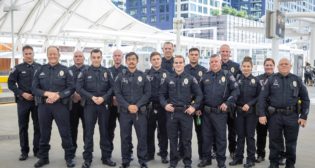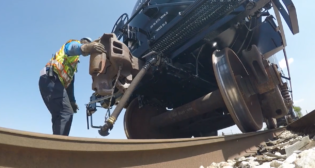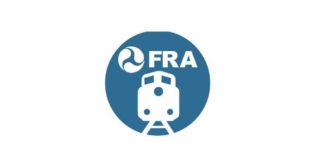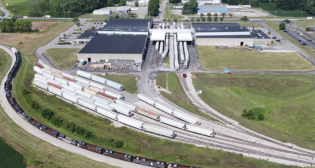
Transit Briefs: NYMTA/LIRR, SEPTA
Written by Carolina Worrell, Senior Editor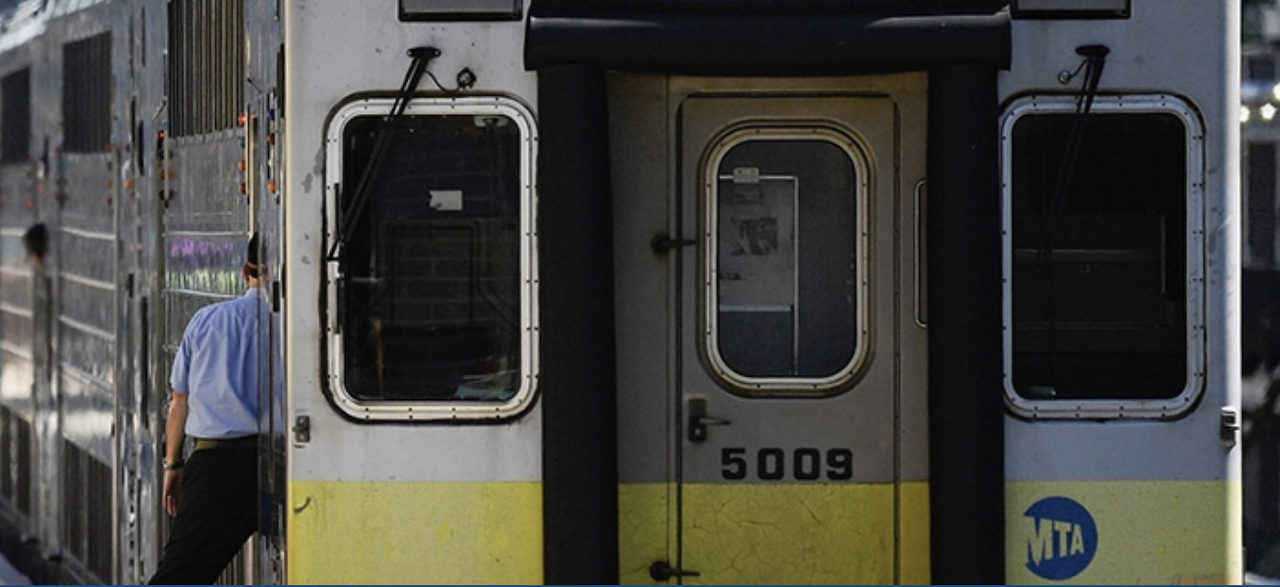
The New York Metropolitan Transportation Authority (MTA) rolls out modifications to Long Island Rail Road (LIRR) Grand Central Madison train service. Also, Southeastern Pennsylvania Transportation Authority (SEPTA) officials express concern about the quality of work performed by China Railway Rolling Stock Corp. (CRRC).
NYMTA/LIRR
Effective, Monday, March 6, the MTA is increasing LIRR rush hour service to Brooklyn, lengthening trains serving Penn Station, adding cars to all trains that exceeded capacity last week, and ramping up customer service presence at Jamaica to improve communication and prevent rushed transfers.
The modified train service, which comes at Governor Kathy Hochul’s direction following a bumpy start to the Grand Central Madison opening last week, includes increasing rush hour service to Brooklyn by adding an additional trainset on Monday and a second additional trainset on Tuesday, reducing time between trains on the Jamaica-Brooklyn shuttle Monday to an average of 8-9 minutes in peak hours, with more frequent service starting Tuesday.
Additionally, the LIRR is lengthening 17 trains serving Penn Station, adding cars to every train that exceeded capacity. Including four trains that were already lengthened last week, and an additional 11 peak trains that result from the targeted increases, a total of 32 trains will have added cars starting Monday, March 6. This includes trains that were nearing capacity as those that exceeded it.
The MTA has also been directed to expand customer service presence, focused at Jamaica, to assist commuters with real-time communication about transfers, including the establishment of a platform controller who will direct when Atlantic Terminal-bound trains depart to reduce the chance that customers would miss the next departing train. In addition to existing LIRR customer service support, 30 additional employees have been deployed to Jamaica and 10 to Grand Central Madison to assist customers through the transition. The MTA says it will also continue to inform LIRR customers about changes to the schedule across platforms, through the TrainTime app, social media, the MTA website, its digital screen network, announcements and customer alerts sent via email and text messages.
These changes, MTA says, are intended to ensure that during rush hours, the platform at Jamaica serving Brooklyn trains will have a train waiting at the platform with doors open and will not depart until a second train has arrived on the opposite track. During the afternoon/evening rush, a similar system will be in place at Atlantic Terminal.
The LIRR operates a Jamaica Central Control Center (JCC) to closely monitor ridership conditions and operations, enabling real-time observations of passenger loading to evaluate and assess what future improvements might be useful. At the Governor’s direction, the MTA says it will continue to monitor overall commuter patterns and make corresponding schedule adjustments to ensure capacity for commuter needs.
“Changes made starting late last week and those scheduled to take effect Monday are data-driven adjustments to reduce wait times and lessen crowding where it occurs,” said Interim LIRR President and President of Metro-North Catherine Rinaldi. “We had said we were looking at every train and every line to assess where customers were not getting the level of service they and we expect. These changes are steps toward ensuring a better experience going forward, while continuing to run more overall service to more NYC terminals than the LIRR ever has before. We will continue to monitor ridership trends and loading conditions and make adjustments as necessary.”
SEPTA
“New double-decker Regional Rail passenger cars are three years behind schedule and SEPTA officials have expressed concern about the quality of work performed by CRRC, the rail car manufacturer owned by China’s government,” according to a report by The Philadelphia Inquirer.
According to the report, in January 2022, General Manager Leslie S. Richards and Board Chairman Pasquale “Pat” Deon, wrote to company executives that SEPTA was frustrated by “delays and production shortcomings” in the first two cars CRRC was building for the agency, warning that SEPTA “must consider whether and how this program will proceed,” and said the transit agency “would not accept any rail cars from CRRC with unresolved problems,” including “repeated failures of watertightness tests, faulty interior panels, wiring issues, repeated break test failures and unsafe emergency exit windows.”
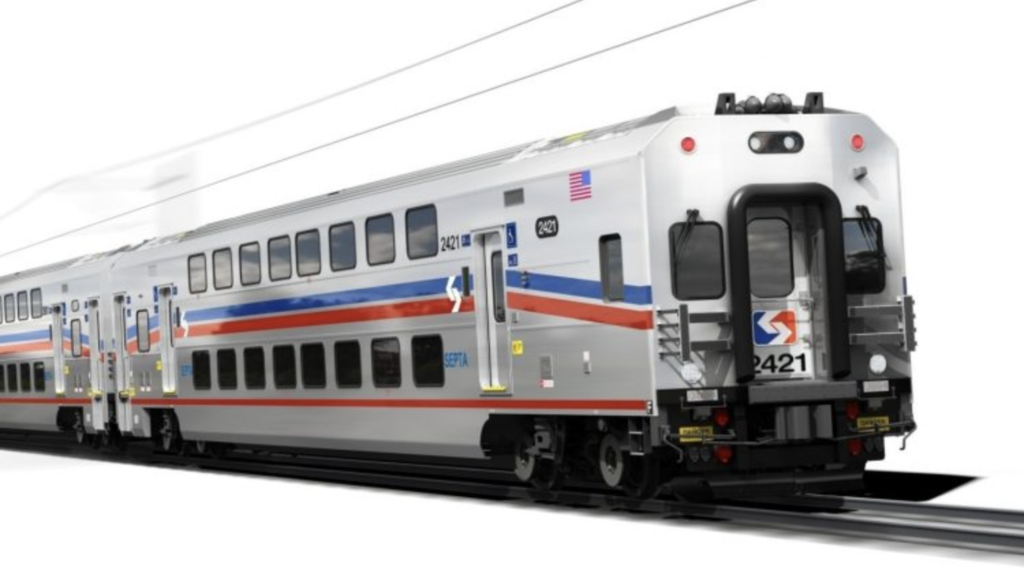
According to The Philadelphia Inquirer report, officials also expressed concern that CRRC MA, the company’s American subsidiary, “had not added staff at its Springfield, Mass., facility, which has been ‘understaffed and chaotic’ during production of its Massachusetts Bay Transportation Authority (MBTA) order, according to a recent Boston Globe story, to handle the final assembly of SEPTA’s ordered cars.”
According to the report, SEPTA spokesman Andrew Busch said, “SEPTA has the right to impose penalties on the company and can sue for damages ‘but the focus is on working with CRRC to fix what’s wrong.’” Busch added that “several issues have been corrected, including water leaks, and the company has provided detailed plans to address the others.”
According to The Philadelphia Inquirer report, CRRC, at one-point last year, “reworked staircases between the lower and upper levels of SEPTA’s cars because the clearance was too low and many passengers would hit their heads on a panel,” the agency said.
According to The Philadelphia Inquirer report, the first two cars, earmarked as test vehicles for SEPTA, are currently in Los Angeles, after recently being shipped from Tangshan, China, where they were initially assembled and tested, Busch said.
The cars, which were disassembled before shipping, will be moved to Springfield for assembly and then on to Philadelphia, though “SEPTA does not know exactly when that will happen,” Busch said, according to The Philadelphia Inquirer report.
“SEPTA inspectors will be on the ground” at the Massachusetts factory and will examine the cars closely, Busch said.
For the remaining 43 cars, the stainless-steel shells will come from CRRC’s China plant and then be fully outfitted and assembled at the Springfield factory of CRRC MA, which also is building the MBTA cars, according to The Philadelphia Inquirer report.
Separately, the U.S. Department of Transportation Office of the Inspector General (USDOT OIG) on Feb. 24 reported initiating an audit of SEPTA’s $138 million contract with CRRC at the request last year of three then-Ranking Members of the House Transportation and Infrastructure Committee. The members questioned whether CRRC MA had met the Federal Transit Administration’s (FTA) Buy America requirements for rolling stock.
SEPTA in May 2017 awarded a $138 million federally funded contract to CRRC MA to design and manufacture 45 new double-decker passenger coaches, with an option for 10 more, for use in Regional Rail service in Philadelphia and the surrounding areas.
